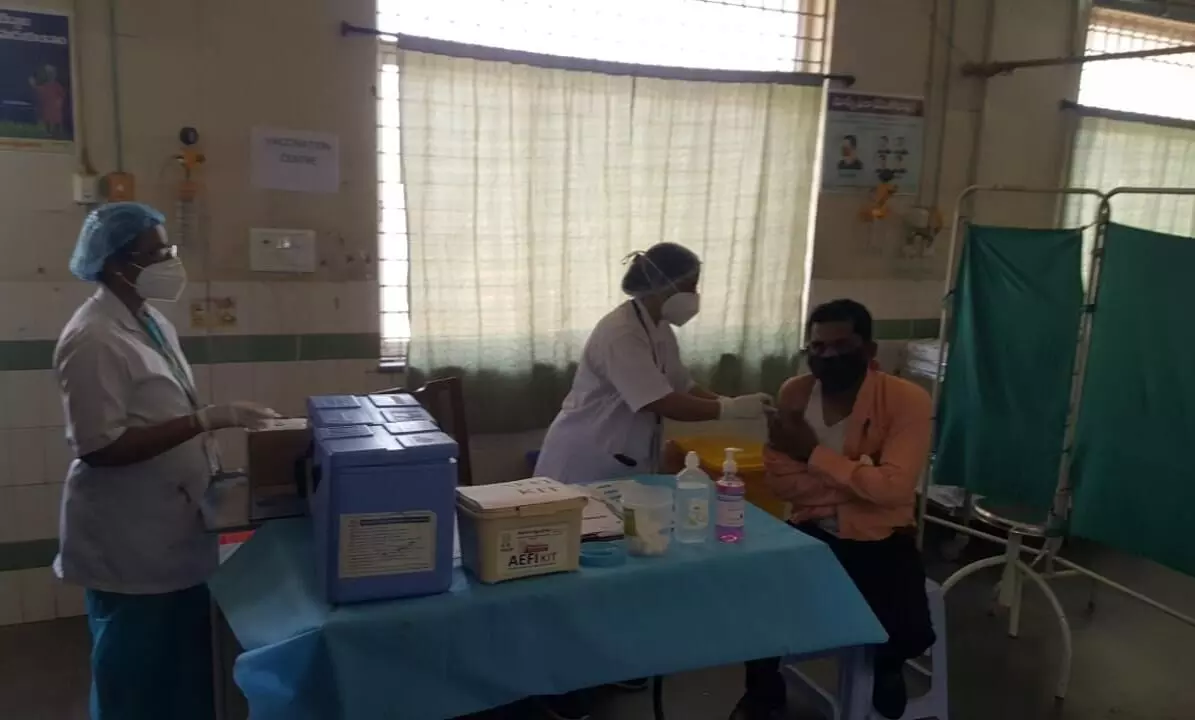Four steps in which COVID-19 vaccine will be administered
The country is gearing up for the COVID-19 vaccine dry run on 2 January after a government-appointed panel cleared the Oxford-AstraZeneca COVID-19 vaccine manufactured by the Serum Institute of India for conditional emergency use.
By Newsmeter Network
Hyderabad: The country is gearing up for the COVID-19 vaccine dry run on 2 January after a government-appointed panel cleared the Oxford-AstraZeneca COVID-19 vaccine manufactured by the Serum Institute of India for conditional emergency use.
The vaccine will be administered in the following four steps:
Step 1: Details of the individual, including name, age, Aadhar details, phone number, etc, will be collected.
Step 2: These details are then entered into the Co-WIN app. After an OTP is generated, the individual is sent for vaccine administration.
Step 3: The vaccine is administered to the patient.
Step 4: Those who have been vaccinated are kept in an observation room.
In Hyderabad, the COVID-19 vaccine dry run will be conducted on Saturday at the following hospitals: Nampally Area Hospital, Gandhi Hospital, Tilak Nagar PHC, and Yashoda Hospital in Somajiguda, Hyderabad. The dry run will also be conducted at Janampet PHC, Neha Sunshine Medical Institute, and Mahabubnagar government general hospital.
The dry run is aimed at testing planned operations and mechanisms for COVID-19 vaccination in the state and will provide insights on any gaps or bottlenecks so that those can be addressed before the commencement of the vaccination drive. It will be used to test the preparedness for vaccinating pre-identified beneficiaries from specified groups supported by Co-WIN, an electronic application.
The dry run on 2 January is being used to test COVID-19 vaccination process in the state such as planning and preparations, including prerequisites for the vaccine introduction as per the operational guidelines; creation of facilities and users on Co-WIN application; session site creation and mapping of sites; health care worker beneficiary data upload on Co-WIN; and receipt of vaccines by the district and vaccine allocation using Co-WIN. It will also test session planning and vaccinator deployment, deployment of team members, vaccine and logistics mobilisation at session site, mock drill of beneficiary vaccination and reporting, and review meetings at block, districts, and state level and providing feedback to guide actions.